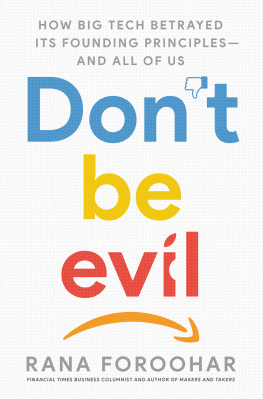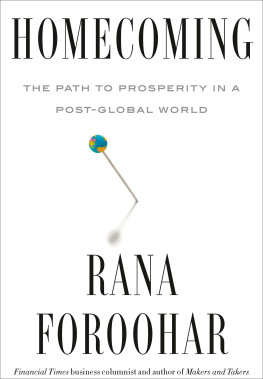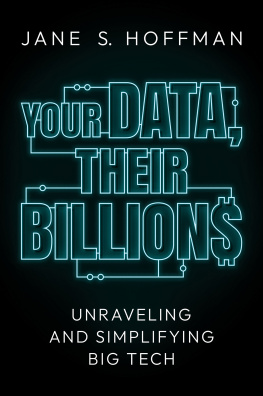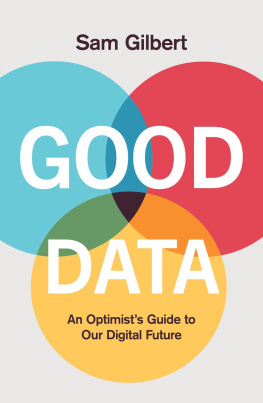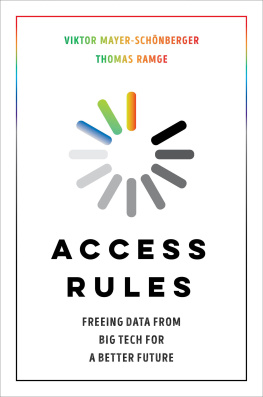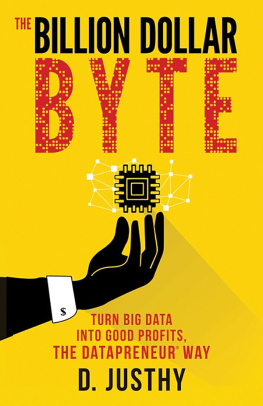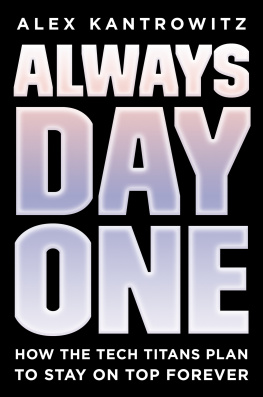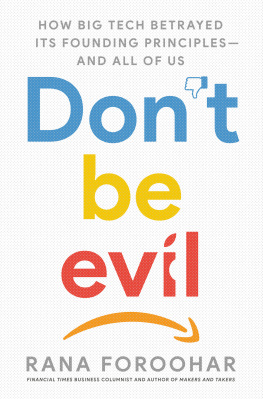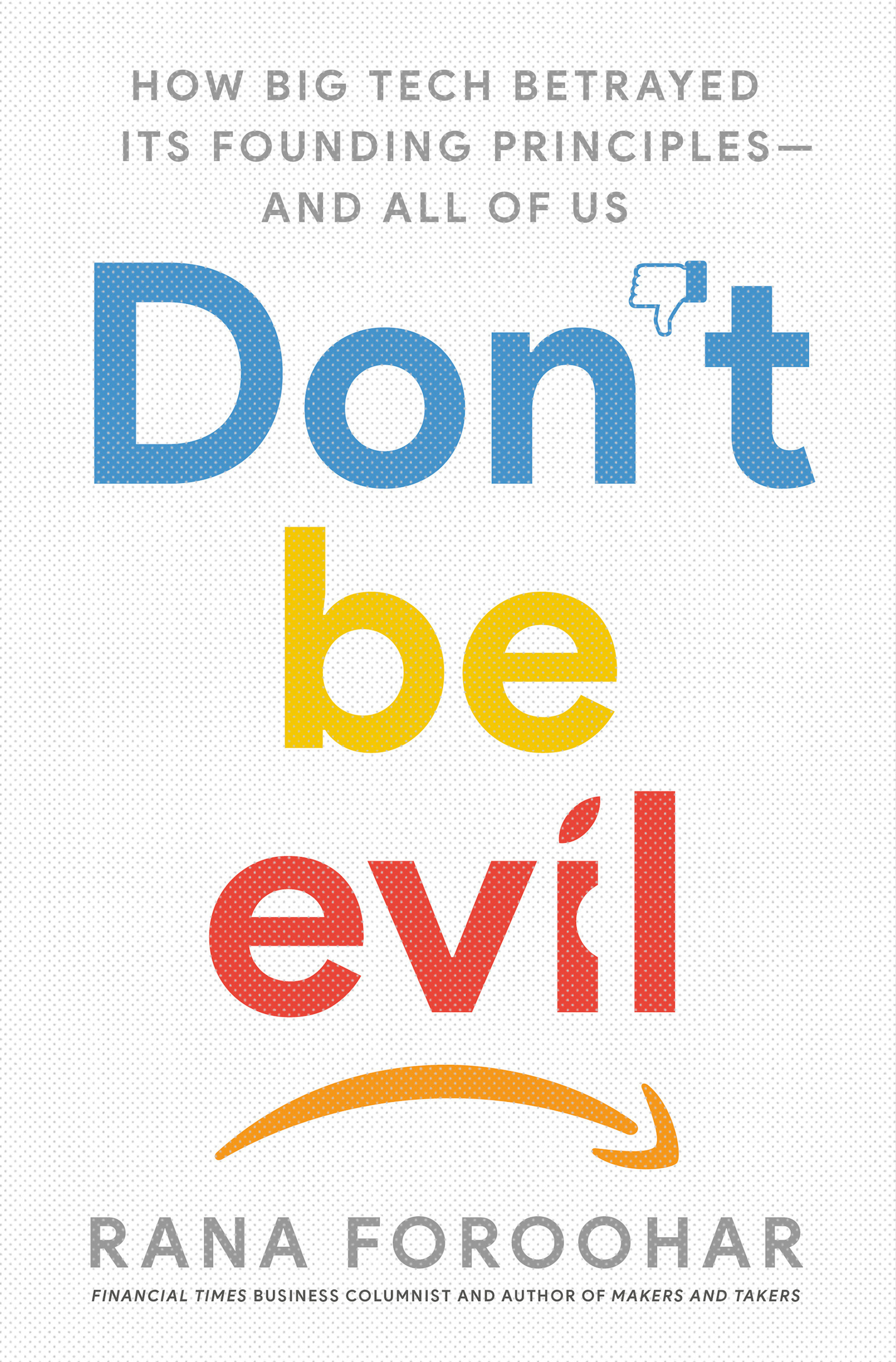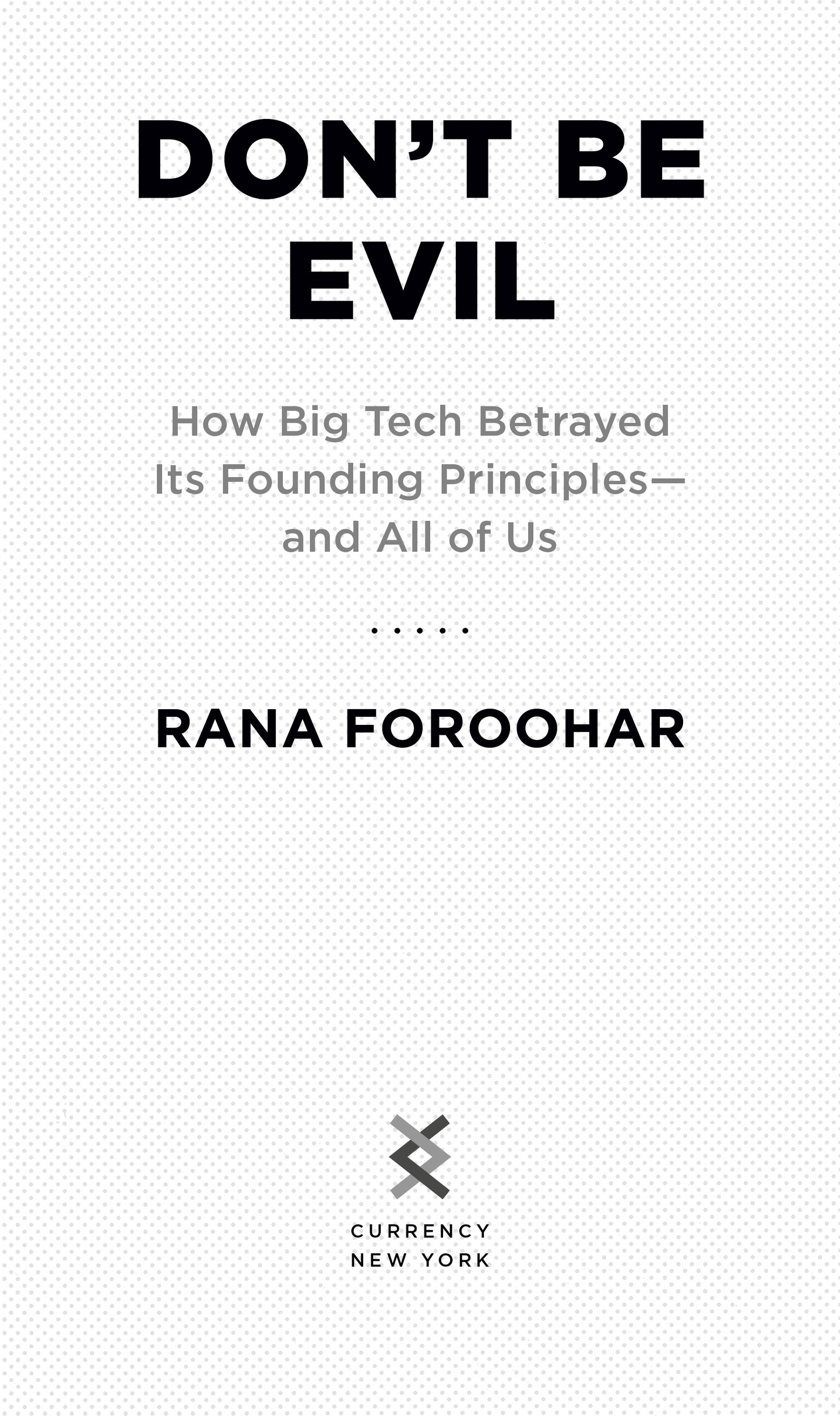All rights reserved.
Published in the United States by Currency, an imprint of Random House, a division of Penguin Random House LLC, New York.
CURRENCY and its colophon are trademarks of Penguin Random House LLC.
Names: Foroohar, Rana, author.
Title: Dont be evil / Rana Foroohar.
Description: First edition. | New York : Currency, [2019] | Includes bibliographical references and index.
Identifiers: LCCN 2019023898 (print) | LCCN 2019023899 (ebook) | ISBN 9781984823984 (hardcover) | ISBN 9781984823991 (ebook)
Subjects: LCSH: Internet industryMoral and ethical aspectsUnited States. | Information technologyEconomic aspectsUnited States. |
Corporate powerUnited States. | Business and politicsUnited States.
Classification: LCC HD9696.8.U62 F67 2019 (print) | LCC HD9696.8.U62 (ebook) | DDC 384.3/30973dc23
I had worked hard for nearly two years, for the sole purpose of infusing life into an inanimate body. For this I had deprived myself of rest and health. I had desired it with an ardor that far exceeded moderation; but now that I had finished, the beauty of the dream vanished, and breathless horror and disgust filled my heart.
Authors Note
Some books are born out of big, abstract ideas; others start closer to home. My last book, Makers and Takers, came out of high-level policy conversations about the financial industry. This book, which examines the economic, political, and cognitive damage wrought by the technology industry over the past twenty years, has a wide lens. But its birth was quite intimate.
It began one afternoon in late April 2017, when I came home from work, opened my credit card bill, and got a shock: over $900 in charges I didnt recognize from Apples App Store. First, I thought Id been hacked. After making a few inquiries, however, I discovered that, in fact, my then ten-year-old son had racked up these charges, buying virtual players for the online soccer game he had become fond of.
His devices were summarily confiscated and passwords revoked, needless to say. But right around that time, the larger implications of this incident were beginning to consume my time and attention, albeit in a different way. I was starting a new job, as the global business columnist for the Financial Times, the worlds largest business newspaper. My mandate was to write a weekly column about the biggest economic stories of the day. And most turned out to involve the Big Tech behemoths of our era, companies like Google, Facebook, Amazon, and, of course, Apple.
Its no secret that the concentration of market power has been rising in numerous industries over the past few decades, a trend that has been linked to everything from growing income inequality to slower economic growth to a surge in political populism. But as I settled into my new role at the FT and began digging into the financial data, I discovered something rather shockingthat 80 percent of corporate wealth was now being held by just about 10 percent of companies. And these werent the firms that owned the most physical assets or commodities; they werent the GEs or the Toyotas or the ExxonMobils. Rather, they were those that had figured out how to leverage the new oil of our economyinformation and networks.
Many of these new superstars were technology companies. The tech industry provides the starkest illustration of the rise in monopolistic power in the world today. Ninety percent of the searches conducted everywhere on the planet are performed on a single search engine: Google. The list goes on and on. Everything in Big Tech goes big or it doesnt go at alland the bigger it gets, the more likely it is to go bigger still.
T HE WEALTH REAPED by the digital giants has been extraordinary. The market capitalizations of the five so-called FAANG companiesFacebook, Apple, Amazon, Netflix, and Googlenow exceed the economy of France. Measured by users, Facebook alone is larger than the worlds largest country, China.
As I wrote and reported, raising concerns about all of this in the pages of the FT, I felt growing unease over the things I was hearing from a broad swath of peopleworkers, consumers, parents, and investorswho felt that Big Tech was putting their livelihoods or even their lives (or those of people they loved) in jeopardy. There were the mothers and fathers who struggled with tech-addicted children. The workers whod lost jobs when their businesses went bankrupt trying to compete with Amazon. The entrepreneur who had his ideas and intellectual property stolen by a competitor and lacked the funds to bring his complaint to court. The homeowner who was denied property insurance because the providers algorithms determined he was too high a risk. Then there were those who simply felt that the entire tech industry wasnt sharing enough of the wealth pie fairly.
And what a pie it is. Big Tech firms are now the richest and most powerful companies on the face of the planet. The inherent desirability of their various products and platforms, coupled with the network effect, in which more users beget still more, and all the data that they harvest as a result, has allowed them to scale to unimaginable dimensions. They have used their size to crush or absorb competitors, to commandeer the personal data of their users, andin the case of Google, Facebook, and Amazonto leverage it for their own benefit in the form of highly targeted advertising. They and other Big Tech firms have also offshored much of their exorbitant profitaccording to one estimate done by Credit Suisse in 2019, the top ten companies offshoring the most savings, including Apple, Microsoft, Oracle, Alphabet (the parent company of Google), and Qualcomm, had $600 billion sitting in overseas accounts
Certainly, many public officials I spoke with echoed my concerns. Silicon Valley was, after all, built around governmentthat is, taxpayerfunded innovation. Everything from GPS mapping to touch screens to the Internet itself came out of research originally done or funded by the U.S. Department of Defense, and was later commercialized by Silicon Valley. Yet unlike many other countries, including a number of thriving free markets such as Finland and Israel, the U.S. taxpayer does not reap a penny of the profits these innovations yield. Instead, these companies were offshoring both profits and labor at the very time that tech titans were asking the government to spend more money on things like educational reform to ensure that the twenty-first-century workforce would be digitally savvy. The consequences are not just economic; by fueling populist discontent with capitalism and liberal democracy, they have high-stakes political ramifications, too.
For someone whod been tracking the financial industry closely since 2007, the parallels were fascinating. There was a new too-big-to-fail, too-complex-to-manage industry out there, one that had grown like ragweed right under our noses. It had more wealth and a bigger market capitalization than any other industry in history, yet it created fewer and fewer jobs than the behemoths of the past. It was reshaping our economy and labor force in profound ways, turning people into products via the collection and monetization of their personal data, and yet went virtually unregulated. And much like the banking system circa 2008, it was flexing its considerable political and economic muscle to ensure that things stayed that way.

